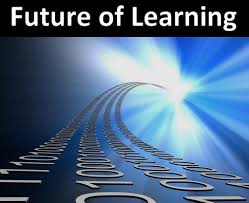Learning with social media: an overview.
November 18, 2009
So a few days ago, I was a presenter for the future of learning in our NCT class.
IMO, it was a very eye-opening experience for both us presenters and the audience. While Mikh and Zam spoke about learning environments and learning in the past respectively, I presented about something ‘close to our hearts’ – learning through social media/technology, A.K.A. social learning.
“Social technologies, aka social media, are a new breed of technologies that have developed over the last few years that have changed the face of the Web and are having a big impact on all aspects of life – working, learning and playing” – Stolen from somewhere off the internetz
Simply, we have moved from web 1.0: the “read-only web”
to web 2.0:
- the “read-write” web
- Supports user-generated content, that is content created by “users”
- encourages the social aspect of the web
Essentially, social media + learning = social learning, it’s what happens when we apply Web 2.0, social technologies to learning. E-Learning (week? :D) 1.0 was all about delivering content, primarily in the form of online courses, produced by experts. E-Learning 2.0 (social learning) is all about people like me and you creating content in a variety of formats and sharing it via blogs, wikis, social bookmarking and social networks. This is going to be the new, collaborative and convenient in which we learn, be it in/formally.
I feel that social learning can create more powerful and enduring learning experiences through the use of online communities and networks, where learners are encouraged to co-create, collaborate and share knowledge and fully participate in their learning. I really hope this gives you people out there some food for thought. And when you digest that food, please tell me that I’m not delusional.
Late pass, but i want to believe in the future.
October 30, 2009
As you can see, this post is quite untimely.

About two weeks ago, my NCT (New Communication Technology) class was shown a few clips from Minority Report – which I must say, is one of the best science fiction films made in recent years. The film’s plot essentially revolves around ‘Precrime’, a police department that apprehends crooks according to foreknowledge provided by psychics known as ‘precogs’ and a whole conspiracy theory which exploits flaws in the system.
Well, the film pretty much gave a possible glimpse into technology of years to come. Floating vehicles, robots, precognition used to solve crimes, advertisements that speak to the individual, virtual reality and most importantly a sixth sense of sorts – where hand gestures are used to interact with information augmented on physical objects (paraphrased from Sixth Sense).
As a start, i would describe the future envisioned in Minority Report as a dystopian utopia (oh, the irony). I guess it’s like a near-perfect society. The lack of crime due to ‘precrime’ and biometric tracking is what we would expect from an utopian society. Policemen even have intuitive spider-like machines working for them.
In a sense, such a society could also be considered a dystopia. Infringement of personal space and the assumption of future crimes committed by a person makes for abridgments of human rights. The age-old argument about whether human being possess free will or whether their actions are predestined by some higher power is thus raised – who is to determine whether what we do in the future? You? Me? Pre-cogs?

Somehow, the movie was both eye-opening and demoralizing at the same time. I wouldn’t mind the technology – jetpacks, floating bikes, virtual reality. But the social and personal repercussions when people can be convicted of murders before they commit them just offsets me. I do hope our future isn’t something like that, and this is something i definitely won’t be cynical about.
Twitter saved my life.
October 27, 2009
And thus, NCT has sent everyone jumping on the big blue birdwagon known as Twitter (see below).

Shaq > Oprah
I don’t necessarily see it as a bad thing.
We as people have to move with technology, trends and ultimately time itself. Organizations, celebrities, athletes, websites, etc are becoming part of the social media community to reach out to the masses and we as the ‘masses’ are somehow inclined to join social networking sites to keep up/in touch.
So it turns out to be a cycle, albeit not a very healthy one. It’s fine as long as information is spread, exchanged and processed. It’s fine as long as the dollars are falling from the sky – like this.
Yet i still manage to see the appeal of Twitter. It’s not just about saying: “oh i’m drinking a soy milk green tea latte frappucino with extra caramel dressing and low-fat whipped cream”. It’s more like expressing your views, sharing links/articles, so on and so forth. (you get the idea)
I’m not going to bore you readers with anymore of my ranting. It might be a tad too much for the mortal mind to handle. Anyway, I hope this makes a good first post. And if anyone out there decides to make an uninteresting twitter post, look here.



